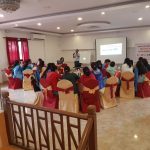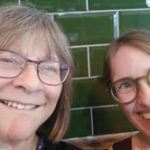Author: Rosie Read (Health and Social Care)
Alternative name suggestion: Socio-Cultural Change, Conflict and Cohesion
Brief theme summary: A rapidly globalising world generates profound economic and social instabilities, opportunities and inequalities. The truly global nature of corporate capital and investment, alongside the large scale migration of populations across the world in search of better opportunities, raises key problems and/or debates in the contemporary world. These developments have been linked to the rise of class and ethnicity-based conflicts and political and religious extremism, as well as the seemingly contradictory role of governments in seeking to encourage growth (via deregulation and privatisation) whilst also needing to guarantee some level of social and economic equality and protection for vulnerable sections of the population (however these may be defined). These problems raise important questions for how to create social cohesion, and specifically the responsibilities of governments, corporations, non-profit organisations and individuals in achieving this.
Scope of theme: what is included? Socio-cultural change, globalisation, conflict, equality and diversity, governance, cohesion, security.
Scope of theme: what is excluded? This theme embraces all strands of social science as well as humanities and the arts. Natural sciences, engineering and technology-based sciences may be outside of this theme in the first instance, but opportunities to collaborate with these disciplines will be taken up where advantageous. This may be potentially fruitful when considering digital technologies, green technologies and the theoretical crucible enabled by complex systems theories.
Which big societal questions are addressed by this theme?
- How can equality, opportunity and social cohesion within and between different societies be understood and defined, ensured and promoted in the context of globalisation? What role, if any, should governments, multinational corporations, non-governmental organisations, faith organisations and individuals play in achieving this?
- How are identities and notions of citizenship formed in societies characterised by cultural diversity, inequality and insecurity? What are the consequences for social cohesion, political organisation, solidarity, collective forms of responsibility and protection against insecurity?
- How can contemporary conflicts in the world be better understood, and thereby addressed or prevented? How can the vast critical scholarship and expertise from the social sciences, arts and humanities be used to analyse and address contemporary conflicts in the world?
How do these link to the priorities of the major funding bodies?
- ESRC: Strategic Plan 2009-2014. This theme overlaps with four (of seven) of key priority areas for this research council’s funding during this period. These are: Global Economic Performance, Policy and Management, Health and Wellbeing, Security, Conflict and Justice and Social Diversity and Populations Dynamics
- RCUK: (1) The AHRC is leading a cross-council research programme entitled ‘Connected Communities’, aimed at creating better understanding of the key societal and economic challenges facing communities, as well as effective forms of intervention. (2) ‘Global Uncertainties’ programme, supported by a range of research councils, including AHRC and ESRC.
- EU: (1) Key theme of Framework 7 is ‘Social and Economic Concerns’, incorporating a number of foci relevant to this theme, such as regional development, employment issues, safety, security and social and economic issues. (2) Youth in Action Programme, European Commission, aimed at promoting sense of European citizenship and solidarity amongst young people in EU.
How does this theme interlink with the other BU themes currently under consideration? This theme has obvious links with several others under consideration, notably Health and Wellbeing, Entrepreneurship and Economic Growth, Learning and Public Engagement and Green Economy and Sustainability.











 BU academic publishes in online newspaper in Nepal
BU academic publishes in online newspaper in Nepal Final day of the ESRC Festival of Social Science
Final day of the ESRC Festival of Social Science Using Art to enhance Research
Using Art to enhance Research Register now to attend the 17th Annual Postgraduate Research Conference – Wednesday 3 December 2025
Register now to attend the 17th Annual Postgraduate Research Conference – Wednesday 3 December 2025 ECR Funding Open Call: Research Culture & Community Grant – Application Deadline Friday 12 December
ECR Funding Open Call: Research Culture & Community Grant – Application Deadline Friday 12 December MSCA Postdoctoral Fellowships 2025 Call
MSCA Postdoctoral Fellowships 2025 Call ERC Advanced Grant 2025 Webinar
ERC Advanced Grant 2025 Webinar Horizon Europe Work Programme 2025 Published
Horizon Europe Work Programme 2025 Published Horizon Europe 2025 Work Programme pre-Published
Horizon Europe 2025 Work Programme pre-Published Update on UKRO services
Update on UKRO services European research project exploring use of ‘virtual twins’ to better manage metabolic associated fatty liver disease
European research project exploring use of ‘virtual twins’ to better manage metabolic associated fatty liver disease
This makes a great statement for such an important area of research. The synergies with our developing ‘vision’ for the academic community ‘Society and Social Welfare’ are clear and this adds strength to the theme’s growth and stature. Looking again at some of the ways it interweaves with other themes is also useful; for instance, the connections with ‘Ageing’ is apparent.
This makes a very good starting point for debate and creating a robust yet broad-reaching theme that can bring neophyte and established researchers together in areas of social science and humanties research.
In terms of…
“How can contemporary conflicts in the world be better understood, and thereby addressed or prevented? How can the vast critical scholarship and expertise from the social sciences, arts and humanities be used to analyse and address contemporary conflicts in the world?”
… I think there is vast scope here for applying our in-house expertise in geospatial science to accomplish just such analysis. Pull this off and the impacts would be massive! Just my 2p!
Culture and society: Members of the forensic group would be interested in engaging in this area to enhance cross school research. There are a few areas where we have research interests that would fit in with the outlined scope: socio-cultural change, conflict, equality and diversity and security. For example drug misuse is a headline topic of huge political concern in our society because of its impact on crime, policing and health. Each of these incurs a significant financial burden to society. Since 1997 over 130 new psychoactive substances have been reported to the European Centre for Drugs and Drug Addiction. We are actively involved in projects relating to drug abuse from genotyping drug users and drug decedents through to analysing controlled drug seizures from night clubs and pop festivals. We can therefore offer extensive support and experience in the area of drug analysis as well as an extensive national and international collaboration list. Interest in our work has recently been expressed by the Advisory Council for the Misuse of Drugs and we believe that there could be significant scope for funding opportunities from within Europe and the USA. From an international perspective members of the team are actively involved in assisting with resolving the aftermath of human rights conflict (Bosnia, Iraq) and would be well placed to co-operate / co-ordinate research in these areas.
There is also considerable interest in this research theme from colleagues from Latin America Research Group (LARG) an informal research group based in the Media School. Our work explores recent trends in Latin American communication research, as well as the influence of socio-cultural and political processes on Media and Communications practice within the region. We also seek to explore a rich and diverse range of research methodologies.
Our current projects include: The transformative potential of Peruvian Marketing discourse (Janice Denegri – Knott and colleagues); Transforming promotional cultures in Latin American urban society (Janice Denegri-Knott and Carrie Hodges); Corporate media as Political Opposition (Cheryl Martens and colleagues); Beyond Borders: The impact of Latin American thinkers on participatory communication (Carrie Hodges and colleagues); The influence of history and culture upon Advertising creativity in Argentina (Cliff Van Wyk).
With reference to the proposal by Kate Welham and myself for the same theme, there is enormous and necessary potential for including a historic dimension to this. Identity, social inequality, conflict, access to resources are all issues that are both big and have a long time depth. Archaeology has the tools to detect and contextualise these for societies of the past and, by doing so, enrich the debate about some of the fundamental and universal themes of humanity. This may well require the application of scientific methods to archaeological materials and I would therefore prefer to not see the natural sciences excluded from the start.
There is enough common ground to think really big.